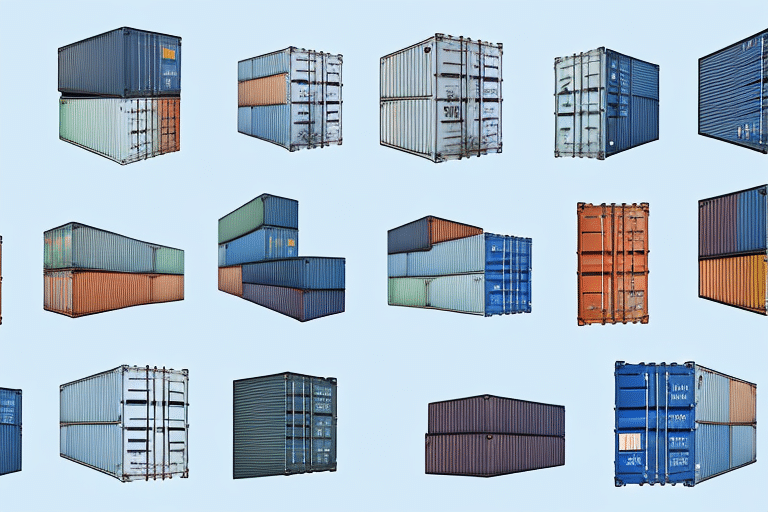Discover the Best Shipping Company for Your Needs
Shipping companies play a vital role in any business that relies on the transportation and delivery of products to customers. They ensure that products are delivered efficiently, reliably, and safely to their destination. According to the Global Shipping Industry Report, the shipping industry contributed over $4 trillion to the global economy in 2022. However, with numerous shipping companies in the market, choosing the right one for your business can be overwhelming. This article explores the factors to consider when selecting the best shipping company to meet your business needs.
Key Factors in Choosing a Shipping Company
Reliability and Track Record
Reliability is paramount when selecting a shipping company. You want a partner with a proven track record of delivering packages on time and in good condition. According to business insights, reliable shipping reduces customer complaints and enhances satisfaction.
Cost and Pricing Structures
Shipping costs can vary significantly between companies. It's essential to compare shipping rates and services to find a solution that fits your budget. Consider not only the base rates but also any additional fees such as fuel surcharges or handling fees. Utilizing [shipping cost calculators](https://www.shipbob.com/resources/shipping-cost-calculator/) can help estimate expenses accurately.
Shipping Options: Air, Land, and Sea
A comprehensive shipping company should offer a variety of shipping options, including air, land, and sea, to accommodate different shipment sizes and distances. For instance, air shipping is ideal for urgent deliveries, while sea shipping is more cost-effective for large, bulky items. Understanding these options allows businesses to optimize their logistics based on specific needs.
Customer Service and Support
Exceptional customer service is essential for resolving issues promptly and maintaining smooth shipping operations. Look for companies that offer 24/7 support, clear communication channels, and robust tracking systems. According to [Customer Service Excellence](https://www.customer-excellence.com/shipping-company-customer-service/), responsive customer support can significantly enhance your shipping experience.
Specialized Handling and Experience
If your business involves shipping specialized items, such as fragile or hazardous materials, it's crucial to choose a company with expertise in handling such shipments. Experienced shippers ensure compliance with regulations and proper handling to prevent damage or accidents.
Geographic Reach and International Capabilities
Consider the geographic coverage of the shipping company, especially if you operate internationally. A company with a strong global network can handle the complexities of international shipping, including customs regulations and cross-border logistics. According to Investopedia, a wide geographic reach can enhance delivery speed and reliability.
Top Shipping Companies in the Market
FedEx
FedEx is renowned for its fast and efficient delivery services, offering options like same-day, overnight, and international shipping. They also provide a range of packaging solutions, including eco-friendly materials. [FedEx](https://www.fedex.com) consistently ranks high in customer satisfaction and reliability.
UPS
UPS is known for its advanced tracking systems, allowing customers to monitor packages in real time. They offer a variety of shipping options, including ground, air, and freight services. [UPS](https://www.ups.com) has a robust global network, making it a strong choice for international shipping needs.
DHL
DHL specializes in international shipping with a presence in over 220 countries and territories. Their services include express delivery, freight transportation, and comprehensive supply chain management. [DHL](https://www.dhl.com) is a preferred choice for businesses with extensive global operations.
USPS
The United States Postal Service (USPS) offers affordable shipping options for both domestic and international packages. They provide additional services such as certified mail, registered mail, and various insurance options. [USPS](https://www.usps.com) is a reliable choice for businesses seeking cost-effective shipping solutions.
Comparing Shipping Rates and Services
Understanding Rate Structures
Each shipping company has its own rate structures, often based on factors like weight, dimensions, distance, and delivery speed. It's important to thoroughly understand these structures to accurately compare costs. Tools like [shipping rate calculators](https://www.shipbob.com/resources/shipping-rate-calculator/) can assist businesses in estimating shipping expenses.
Discounts and Incentives
Many shipping companies offer discounts for high-volume shipments or long-term contracts. Additionally, some carriers provide incentives for using specific shipping methods. Leveraging these discounts can lead to significant cost savings, especially for businesses with substantial shipping needs.
Evaluating Destination Coverage
The reliability of a shipping company can depend on their coverage in your target destinations. Some carriers have stronger services in certain regions or countries, which can impact delivery times and reliability. Research the performance of shipping companies in your key markets to ensure consistent service.
Considering Environmental Impact
With increasing awareness of environmental issues, many businesses prioritize eco-friendly shipping options. Some shipping companies offer carbon-neutral shipping, use sustainable packaging materials, or optimize routes to reduce emissions. Choosing a green shipping partner can enhance your company's sustainability efforts and appeal to environmentally conscious customers.
Managing Shipping Logistics for Your Business
Assessing Your Shipping Needs
Before selecting a shipping company, it's critical to evaluate your specific shipping needs. Assess factors like shipping volume, frequency, destination, shipment size, weight, and fragility. This assessment helps in selecting a carrier that aligns with your operational requirements and can scale with your business growth.
Ensuring Safe and Secure Packaging
Proper packaging is essential to protect your products during transit. Use appropriate packaging materials, such as bubble wrap or air pillows for fragile items, and secure packages with strong packing tape or straps. Well-packaged goods are less likely to be damaged, reducing returns and enhancing customer satisfaction.
Handling Shipping Disputes and Delays
Despite choosing reliable carriers, shipping delays and disputes can occur. It's important to have clear communication with your shipping company and maintain detailed records of all transactions and correspondence. Implementing effective conflict resolution strategies can help mitigate issues swiftly, minimizing impact on your business operations.
Managing Shipping Budget
Effective budget management involves tracking shipping expenses, seeking cost-saving opportunities, and optimizing shipping methods. Utilize volume discounts, standardized shipping protocols, and technology solutions to monitor costs and adjust strategies as needed to stay within budget.
Innovations and Future Trends in the Shipping Industry
Technological Advancements
Technology continues to revolutionize the shipping industry, enhancing efficiency and transparency. Innovations like automated tracking systems, RFID technology, and AI-powered logistics solutions improve shipment visibility and operational efficiency. Staying updated with these technologies can provide a competitive edge.
Sustainable and Green Shipping Practices
Environmental sustainability is a growing focus in the shipping industry. Companies are adopting practices such as using electric delivery vehicles, optimizing delivery routes to reduce fuel consumption, and utilizing eco-friendly packaging materials. Embracing sustainable practices not only benefits the environment but also meets the expectations of eco-conscious consumers.
Preparing for International Shipments
International shipping requires a thorough understanding of customs regulations, duties, and import/export laws. Partnering with a shipping company experienced in international logistics can facilitate smooth cross-border transactions and prevent costly delays. Ensure all necessary documentation is accurately completed to comply with global trade regulations.
By considering these factors and adopting best practices, your business can select the optimal shipping partner, ensuring efficient and reliable delivery of products to your customers.






















